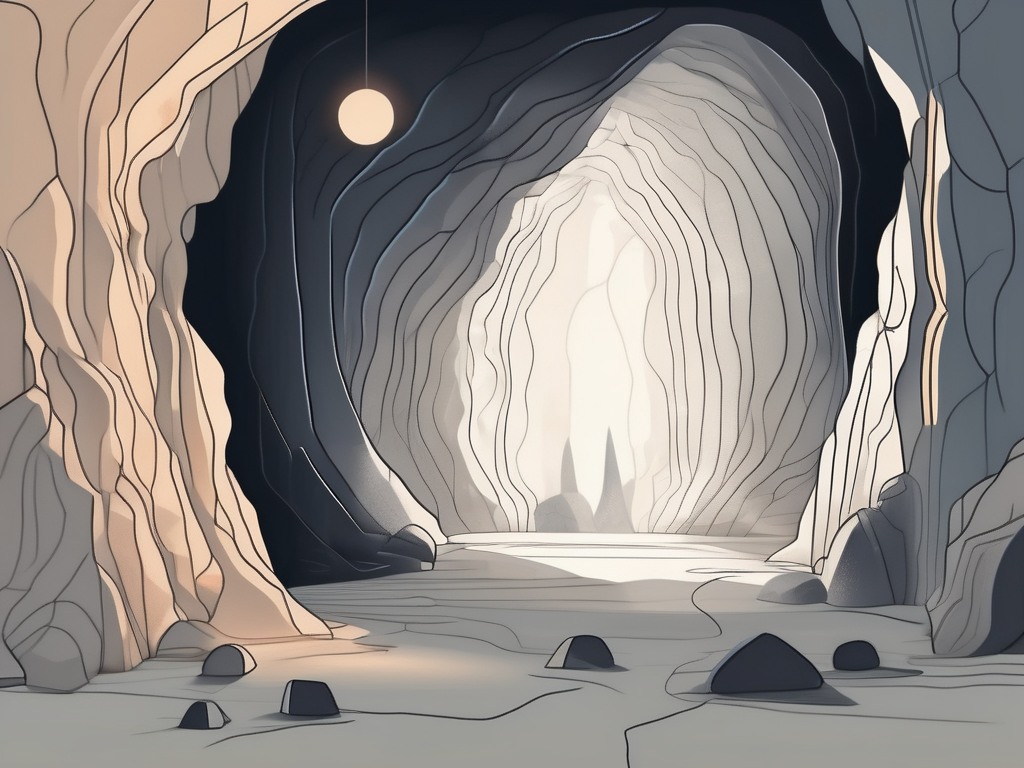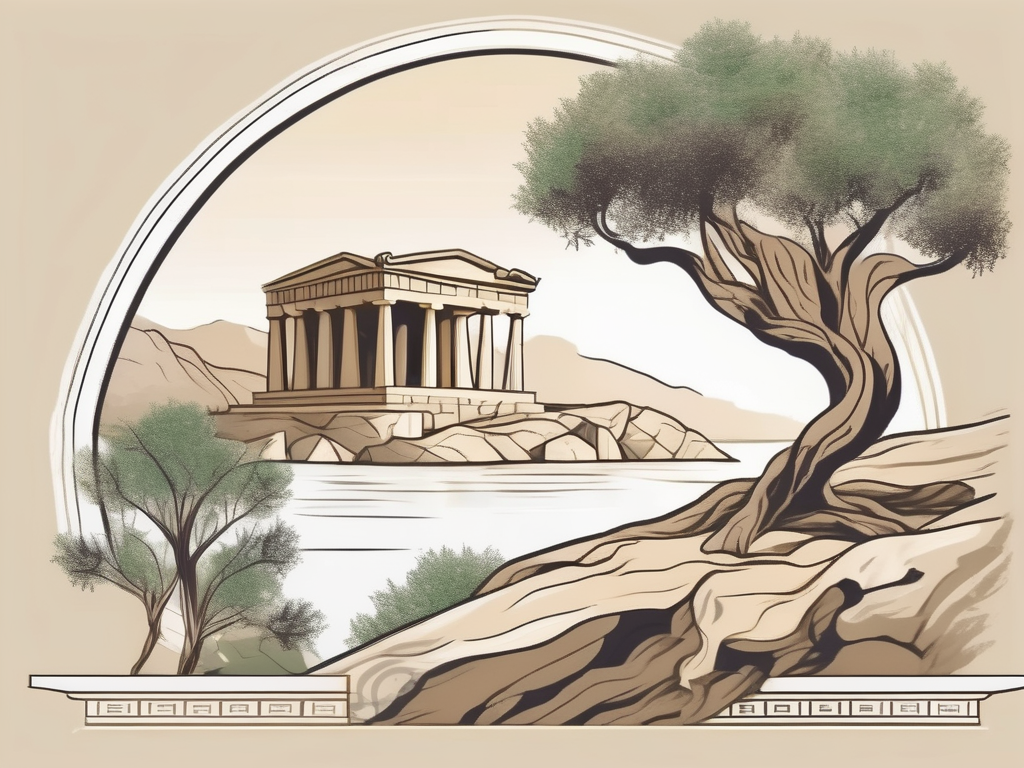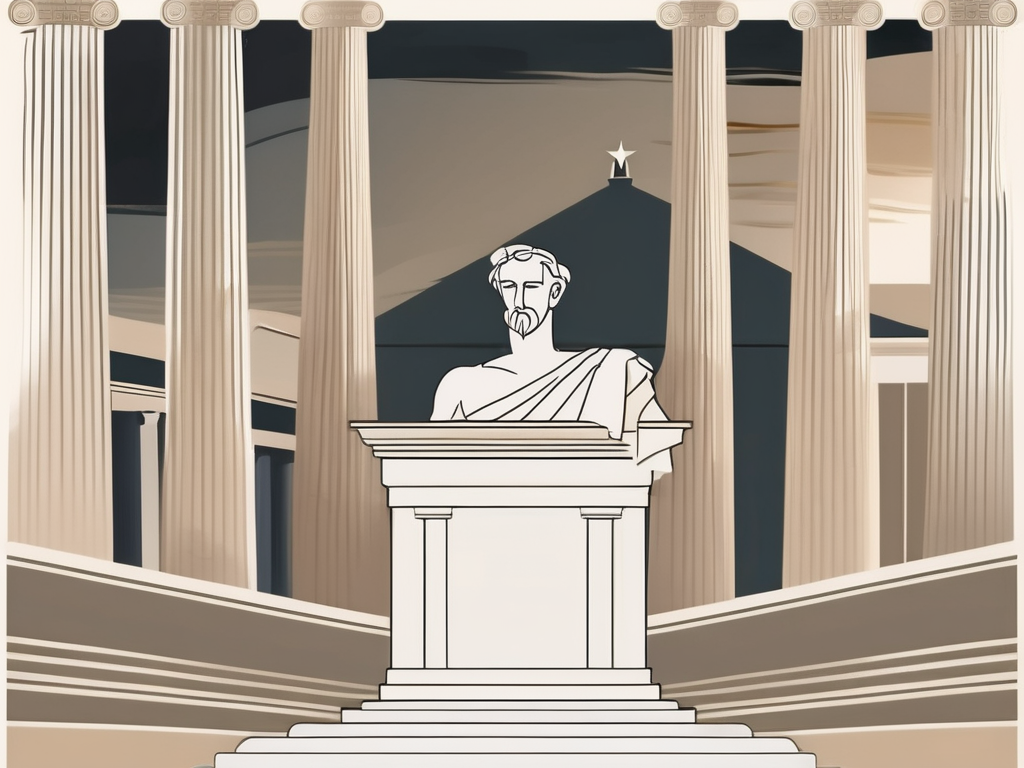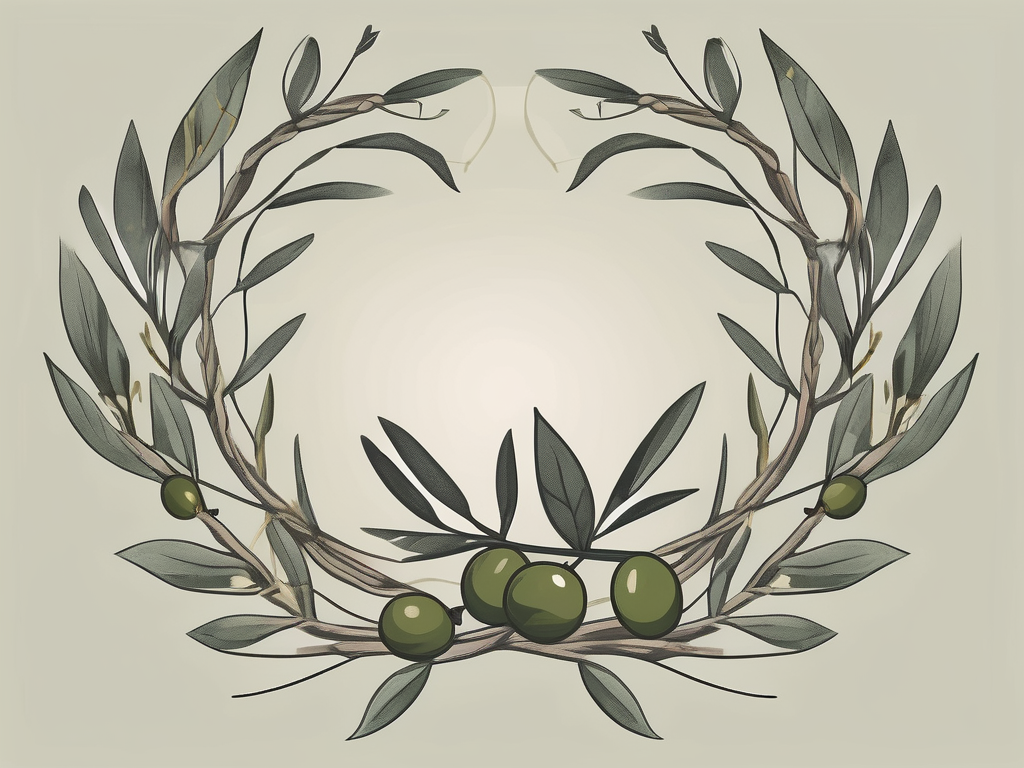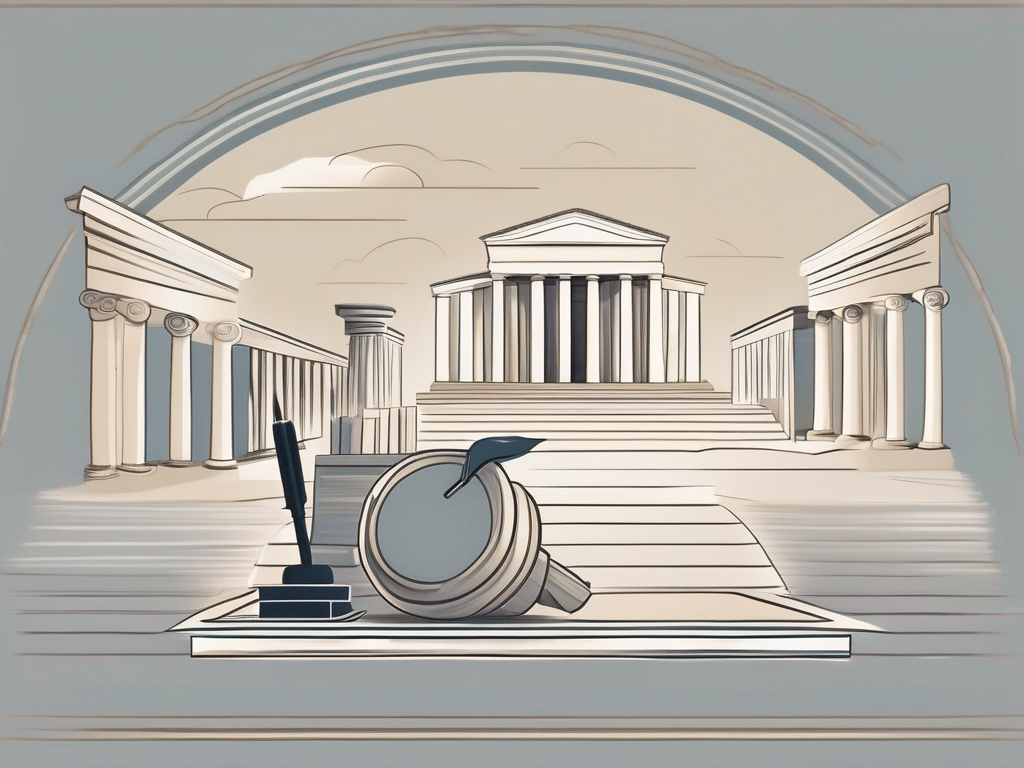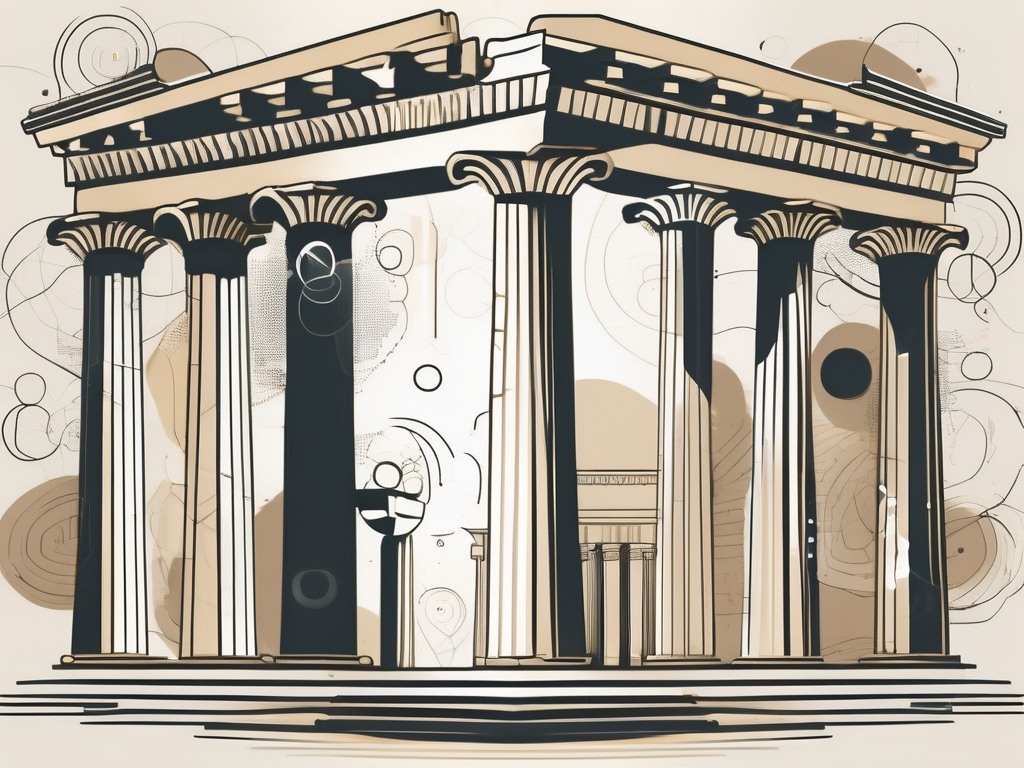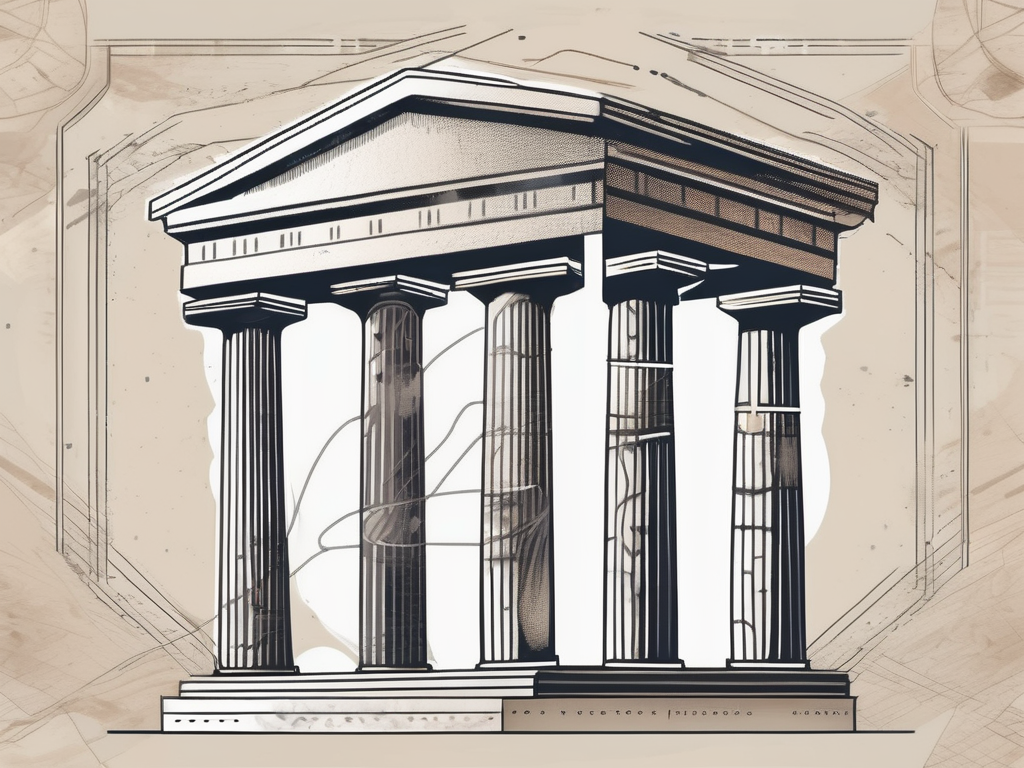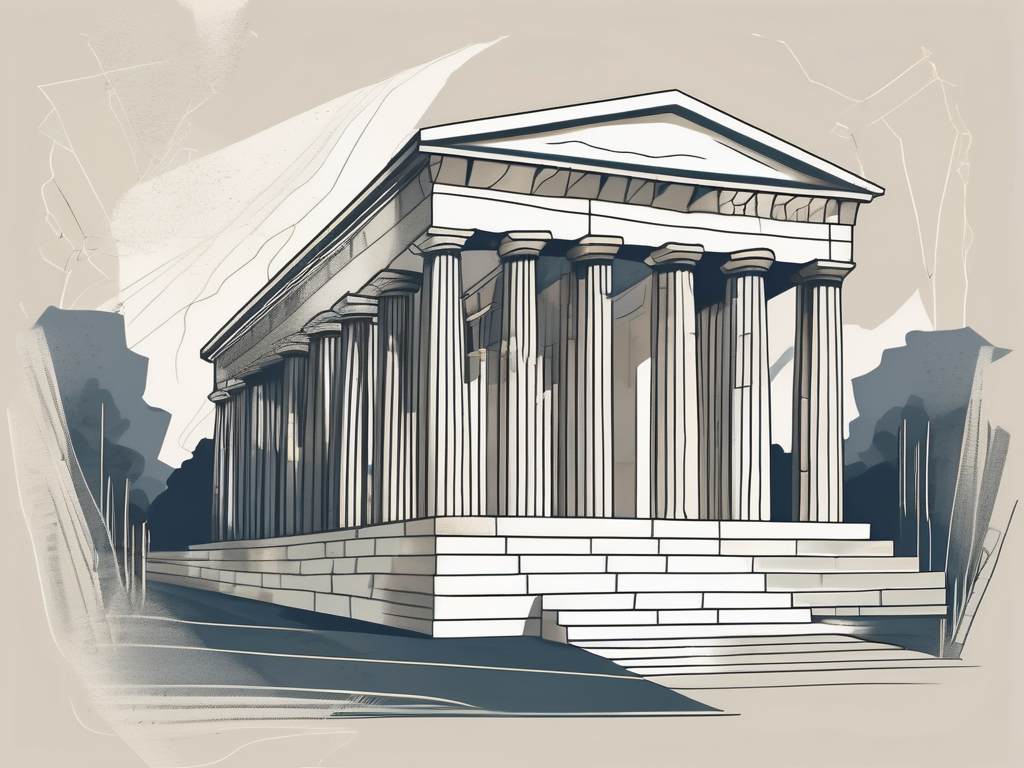Plato’s Allegory of the Cave is a thought-provoking philosophical concept that continues to captivate readers and scholars alike. Through the use of powerful imagery and metaphors, Plato skillfully explores deep ideas about perception, reality, knowledge, and more. In this article, we will delve into the allegory and examine some of its most notable quotes, uncovering their meaning and relevance both in ancient times and in our modern society.
Understanding the Allegory of the Cave
Before we dive into the quotes, let’s first understand what Plato’s Allegory of the Cave represents. The allegory is basically an extended metaphor that depicts a group of prisoners chained inside a dark cave. They have been there since birth, facing a wall with only the shadows of objects being projected in front of them. These shadows form their entire reality.
Imagine the darkness of the cave, the dampness in the air, and the eerie silence that engulfs the prisoners. They have never known anything else. They have never seen the vibrant colors of a sunset, felt the warmth of the sun on their skin, or heard the joyful laughter of children playing. Their existence is confined to the flickering shadows that dance before their eyes.
Plato uses the prisoners as a symbol for ordinary people who are trapped in their limited perceptions and beliefs, unaware of the true nature of reality. The cave itself represents the world of senses, while the outside world represents the realm of higher truth and knowledge.
The Concept of Plato’s Cave
At the core of the allegory lies the idea that humans are initially ignorant of the true nature of reality. We are like the prisoners in the cave, only perceiving shadows and mistaking them for reality. It challenges us to question the limitations of our senses and explore the possibility of a more profound truth beyond what we can directly see and feel.
Consider the implications of this concept. How many times have we mistaken appearances for reality? How often do we rely solely on our senses to understand the world around us, without questioning the deeper meaning behind what we perceive? Plato’s allegory urges us to go beyond the surface level and seek a deeper understanding of the world.
The Symbolism in the Allegory
Plato’s use of symbolism throughout the allegory is both powerful and thought-provoking. The dark cave represents the ignorance and narrow perception that often envelops us. It is a symbol of the comfort zone we find ourselves in, where we are content with the shadows and illusions that surround us.
But what lies beyond the cave? What awaits us if we dare to step outside our comfort zone and challenge our preconceived notions? The shadows symbolize the illusions and false beliefs that distract us from seeking true knowledge and understanding. They are the distractions that keep us from questioning the status quo and exploring the depths of our own minds.
Furthermore, the journey of the prisoner who escapes the cave and witnesses the sun outside symbolizes the process of enlightenment and the attainment of higher wisdom. It prompts us to question the nature of reality and delve deeper into the realm of ideas and truth. Just as the prisoner is initially blinded by the brightness of the sun, we too may be overwhelmed by the vastness of knowledge that lies beyond our limited perceptions.
But it is through this journey, through the struggle to break free from the chains of ignorance, that we can begin to see the world in a new light. We can start to question the shadows that have defined our reality and seek a deeper understanding of the truth that lies beyond.
Notable Quotes from the Allegory of the Cave
Let’s now explore some of the most impactful quotes from Plato’s Allegory of the Cave. These quotes shed light on profound ideas and provoke introspection and reflection.
Quotes on Perception and Reality
“The shadows on the cave wall are our only perception of reality.”
This quote highlights the limited nature of our perceptions and emphasizes how easily we can be deceived by our senses. It encourages us to question the validity of our reality and challenge the assumptions we make based on our limited experiences.
Imagine yourself sitting in a dark cave, chained to a wall, with only the flickering light of a fire behind you. The shadows dancing on the wall in front of you are all you have ever known. They are your reality. But what if there is more to the world than these mere shadows? What if there is a whole realm of truth and knowledge waiting to be discovered?
Plato’s quote urges us to break free from the confines of our limited perceptions and venture into the unknown. It beckons us to question the shadows that shape our reality and strive for a deeper understanding of the world around us.
“Perception is merely the interpretation of the shadows cast by reality.”
Here, Plato compels us to go beyond our simple interpretations of the world. He invites us to examine the meaning behind our perceptions and consider the possibility of a deeper, more fundamental reality.
Think about how our minds construct our understanding of the world. We interpret the shadows we see, but are they truly representative of the objects that cast them? Plato challenges us to question the nature of perception itself. Are we truly perceiving reality, or are we merely interpreting the shadows that are cast upon us?
This quote encourages us to delve into the philosophical realm of epistemology, the study of knowledge and how it is acquired. It prompts us to question the reliability of our senses and the limitations they impose on our understanding of the world.
Quotes on Knowledge and Ignorance
“True knowledge is attained by turning away from the shadows and seeking the light outside the cave.”
This quote emphasizes the importance of seeking truth beyond our immediate experiences. It urges us to overcome our ignorant state and strive for genuine knowledge by exploring ideas and seeking wisdom.
Imagine the moment when one of the prisoners in the cave manages to break free from their chains. They turn away from the shadows and venture towards the entrance of the cave, where the blinding light of the sun awaits them. This represents the journey towards true knowledge.
Plato’s quote inspires us to question our own limitations and biases. It encourages us to step out of our comfort zones and explore new perspectives. True knowledge, according to Plato, is not found within the confines of our familiar surroundings but in the pursuit of wisdom and understanding beyond them.
“Ignorance is bliss only until we realize the depth of our ignorance.”
Plato challenges the notion that ignorance is desirable. He suggests that true enlightenment comes from acknowledging the limitations of our knowledge and actively seeking to expand it.
Think about a time when you were blissfully unaware of a certain truth. You may have been content in your ignorance, but once you became aware of your lack of knowledge, a desire to learn and grow likely emerged. Plato’s quote reminds us that true bliss lies not in ignorance but in the pursuit of knowledge.
Plato encourages us to embrace the discomfort that comes with realizing the vastness of our ignorance. It is through this discomfort that we can embark on a journey of self-improvement and intellectual growth.
Interpreting the Quotes
Now that we have explored these profound quotes, let’s delve deeper into their philosophical implications and consider their relevance in today’s society.
The Philosophical Implications of the Quotes
Plato’s quotes from the Allegory of the Cave invite us to question the nature of reality and our understanding of it. They push us to challenge our preconceived notions and strive for a higher level of consciousness and awareness.
By questioning the validity of our perceptions and embracing the possibility of a deeper truth, we open ourselves to new perspectives and elevate our intellectual and philosophical growth.
The Quotes in Modern Context
Plato’s quotes retain their relevance and significance even in our modern context. In today’s age of information overload and superficial representations of reality, these quotes remind us to not settle for surface-level knowledge but to seek depth and truth.
They call upon us to be critical thinkers, to question the narratives presented to us, and to actively pursue knowledge beyond what is readily available. In a world that is constantly bombarding us with distractions, these quotes urge us to break free from the cave of ignorance and embrace a more enlightened way of living.
The Influence of Plato’s Allegory on Philosophy
Plato’s Allegory of the Cave has had a profound impact on the field of philosophy, particularly in the areas of epistemology and metaphysics.
The Allegory’s Impact on Epistemology
The allegory challenges traditional notions of knowledge and invites us to question the reliability of our senses. It calls into question the validity of empirical knowledge and encourages us to explore the realm of ideas and true understanding.
Plato’s allegory has inspired countless debates and discussions on the nature of knowledge and the means of acquiring it. It serves as a reminder of the importance of critical thinking and the pursuit of truth in the face of societal illusions.
The Allegory’s Impact on Metaphysics
The allegory also offers profound insights into the realm of metaphysics. It prompts us to consider the nature of reality beyond what is immediately perceptible. The distinction between the shadows in the cave and the sunlight outside serves as a metaphor for the duality of appearance and essence.
Plato’s allegory has influenced numerous philosophical theories, contributing to ongoing discussions about the nature of reality and the existence of a higher truth. Its impact can still be seen in various branches of metaphysical inquiry.
Conclusion: The Enduring Relevance of Plato’s Allegory
Plato’s Allegory of the Cave continues to hold immense significance in our understanding of perception, reality, knowledge, and philosophy as a whole. Its enduring relevance lies in its ability to provoke introspection and challenge us to question the nature of our existence.
Through the allegory and the quotes it contains, Plato reminds us that true enlightenment comes from seeking truth beyond our limited perceptions and acknowledging the depth of our ignorance. It invites us to embark on a lifelong journey of intellectual discovery and expands our horizons beyond the confines of the cave.
As we explore these ideas and delve into the profound quotes from Plato’s Allegory of the Cave, let us embrace the timeless wisdom and strive for a deeper understanding of the world around us.
